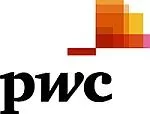Overview
The Pension Reform Act (PRA) 2014, allows contributors to make voluntary contributions (VCs) into their Retirement Savings Account (RSA). VCs are tax deductible in line with provisions of the PRA. The Act however does not prescribe any specific limits regarding the amount that may be contributed as VC and conditions for withdrawal of such contributions. A good number of contributors have been taking advantage of this opportunity to contribute a significant portion of their income as VCs while some withdraw their contributions within a short period of time suggesting that the main purpose of such VCs was not savings for pension or retirement but to avoid tax.
Highlights of the Public Notice
Limit to contribution
The Joint Tax Board (JTB) and Lagos State IRS are seeking to limit the amount that can be made by an employee as VC to one-third of the employee's salary based on the provisions of S.5(7) of the Labour Act.
Tax on withdrawals from voluntary contributions
Payments made by the Pension Fund Administrators (PFA) on account of VCs that do not meet the conditions for withdrawal or appear to have been arranged purposely as a means of tax planning may be deemed as artificial transactions. Based on S.17 of the Personal Income Tax Act (PITA), such may be disallowed for tax purposes thereby nullifying the exemptions previously claimed.
Takeaways
As indicated in the notice, the restrictions in the Labour Act regarding deductions from monthly salary is only applicable to blue collar workers and does not apply to persons exercising administrative, executive, technical, or professional functions.
While there is a proposed amendment to expand the meaning of workers to include all employees, the existing Labour Act is not applicable to the category of employees that are excluded in the extant law until otherwise amended. The Notice references the conditions for withdrawal of mandatory contributions under S.16 of the PRA. This is however not applicable to voluntary contributions which is covered under S.10. This section only imposes tax on income earned on VC withdrawals made within 5 years of contribution. As such, taxing all withdrawals made from the VC as indicated in the public notice would be inconsistent with S.10 of the PRA. The artificial provisions in S.17 of the PITA is perhaps a more tenable basis for the public notices.
In addition, the relevant authorities should indicate a minimum period after which withdrawal of VCs would not be considered as an artificial transaction.
Employers need to put in place systems to ensure that contributions made by their employees pass a reasonableness test as S.17 (3b) of PITA gives the tax authorities broad powers to classify deductions as fictitious. However, as the payment of withdrawals are not made by the employers, there would be no legal basis to hold employers liable for any tax arising from the "deemed abuse" of the VC scheme.
Overall, the move by the JTB and LIRS to check both real and perceived abuse of VCs under the pension scheme is yet another indication of the quest by government to block tax leakages and improve revenue generation. Ultimately, a lasting solution would require an amendment to the Labour Act and Pension Reform Act.
The content of this article is intended to provide a general guide to the subject matter. Specialist advice should be sought about your specific circumstances.



